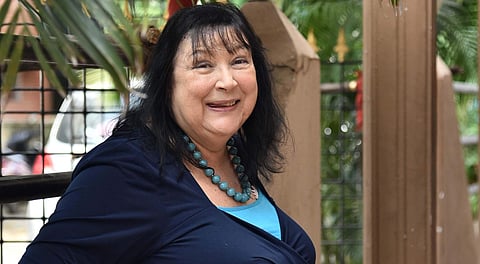

When Angela Fawcett decided to go back to university, 30 years ago, she was different from any other normal student. She was 40 then and was the mother of an eight-year-old. In fact, her young son was the reason why this mother went back to university to do her Master’s in Psychology. Her son Matthew was confirmed dyslexic and as a loving mother, she knew that she had to do something to find the cause of the disorder.
Today, Angela is the Vice-President of British Dyslexia Association. Also, she can proudly claim that three of the existing theories on dyslexia are her contributions. “I went to full-time university for our son. Later, I found that my husband is dyslexic. It is genetic. If one among the parents is dyslexic, chances are the child will be dyslexic too,” she recalls. Recently, on her visit to Chennai, she gave a talk on the impact of ‘Dyslexia Across the Life Span’ to a few special educators.
One of the points that she concentrated on was positive dyslexia. As ironic as it may sound, we were more than curious to know about it. And Fawcett was happy to explain. “Creativity and the ability to see things differently is a trait you see in dyslexic students. You have to think creatively to know the right answer. So you end up creating something different and creative,” she says. Another surprising aspect that she explained was management skills, that can be moulded if dyslexia is detected at an early age.
She tells us the story of her son Matthew, who is 40 now. “In secondary school, he couldn’t find the pigeon-hole to hand in his homework. His teachers thought he hadn’t done any. It was difficult. But later, with proper training, he could overcome the struggle,” she says. Matthew now leads the CND campaign against the Trident missile for the North of England. She also explained a few problems that dyslexic students may face. “They tend to struggle with basic skills. You lose your confidence. You feel stupid,” she says.
But with her team, she has designed an early screening test for school children in the UK, which identifies the disorder before they begin school. It has been mandated in 48 out of 54 schools in Sheffield. “The assessment is quite simple. It only takes half an hour. They are tested on knowledge, memory, music, curriculum,” she says.
She also raises concerns about the plight of dyslexic students in India. “10percentt of the students here are dyslexic. Despite this, it isn’t legally recognised. There is a severe lack of trainers and there is still so much stigma attached,” she says, stressing on the need for more special trainers and the need to introduce some early screening.
